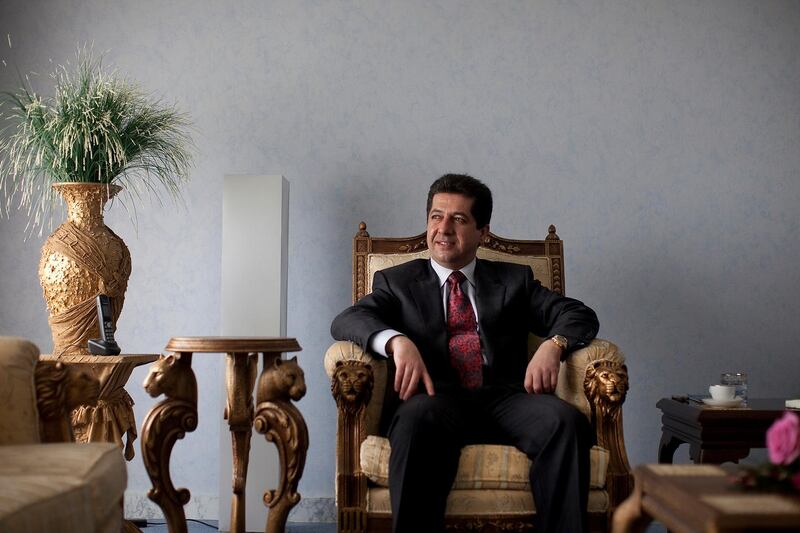The UN on Wednesday accused authorities in Iraq's autonomous Kurdish region of intimidating and arbitrarily detaining journalists and activists.
"Over the past year, journalists, human rights activists and protesters who questioned or criticised actions by the Kurdistan regional authorities have faced intimidation, threats and harassment, as well as arbitrary arrest and detention," the UN said.
The joint report by the UN's Iraq mission and the office of its High Commissioner for Human Rights, came a week after an appeals court upheld six-year jail sentences for five journalists and activists, after a trial criticised by rights groups.
The report said 33 journalists, activists or human rights defenders were arrested without being given a reason, denied access to lawyers or held without their families being told.
"In at least five documented cases, journalists and human rights defenders have been charged, released on bail, then immediately rearrested on different charges, leading to concerns that the legal system is being 'instrumentalised'," to pressure them into self-censorship, it said.
On Tuesday last week an Erbil court upheld six-year jail sentences for three journalists and two activists on several charges.
They included "inciting protests and destabilising" Kurdistan, "spying", "armed" struggle and "misuse of electronic devices".
The five men covered or took part in anti-government protests last year in several Kurdish cities and towns over a major fiscal crisis that delayed public-sector salaries and led to pay cuts.
Human Rights Watch said the charge of spying was based solely on social media posts and testimony of "secret informants", who did not appear and were not cross-examined.
"These men were sentenced because of a biased political will," said Belkis Wille, senior researcher at HRW.
A US State Department report on human rights in Kurdistan last year said "senior leaders reportedly influenced politically sensitive cases".
One of the men, journalist Sherwan Sherwani, is known for his investigations into corruption,
Before his arrest, Sherwani criticised Kurdish Prime Minister Masrour Barzani on Facebook.
The Cassation Court's decision "represents how significantly Kurdish authorities have allowed free expression to be eroded", Ms Wille said.
Many activists say the security crackdown began after Mr Barzani, a former head of the security and intelligence services, took office.
The Kurdistan Regional Government has insisted that the reporters had access to lawyers and that Erbil "does not interfere in judicial proceedings".
A week before the trial Mr Barzani said the detainees were "neither activists nor journalists", but "spies" and "saboteurs".
More on the Middle East
[ Kurdish official says spate of ISIS attacks in Iraq shows group's resurgence ]
[ Iraqi Kurds thwart Al Hol terrorism plot on Erbil ]
[ Syria's Kurds snare senior ISIS recruiter in refugee camp search ]








